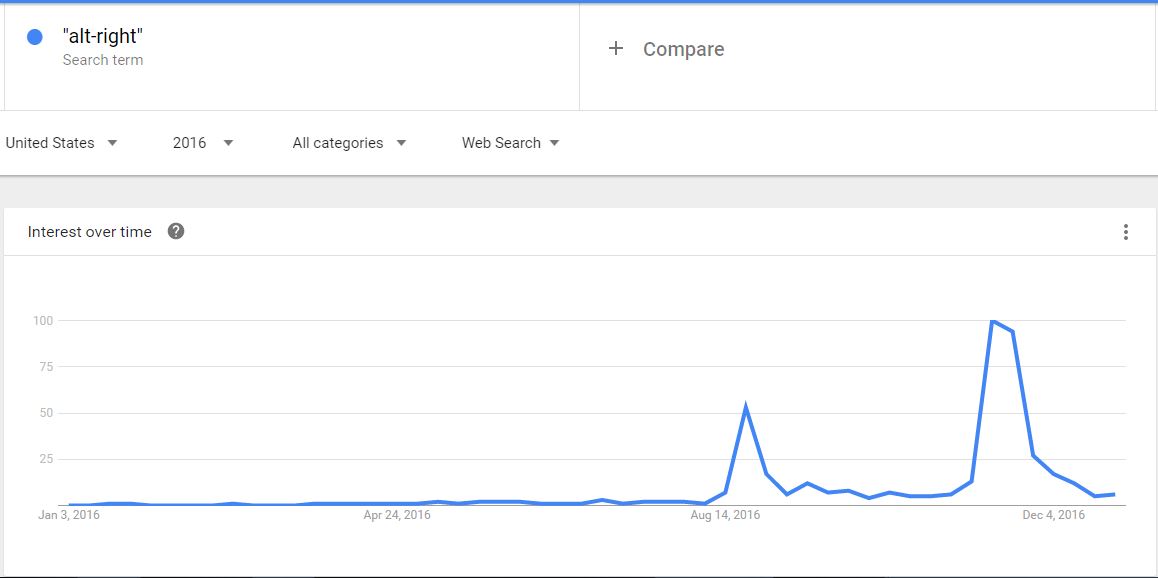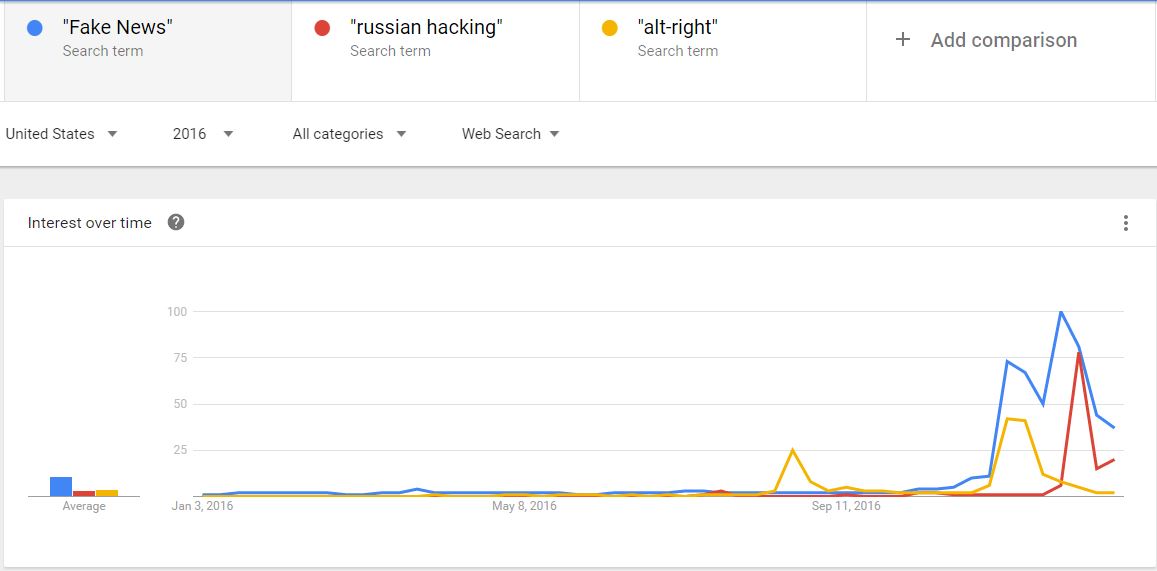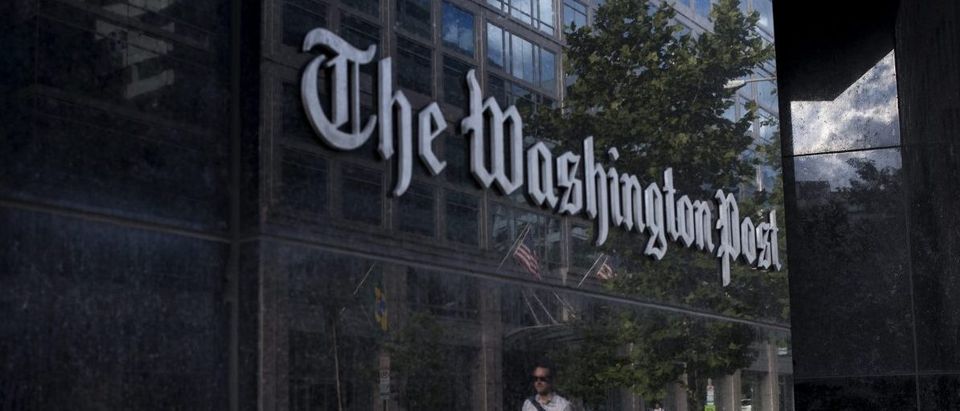On Election Day 2016, statistician Nate Silver of Fivethirtyeight.com gave Hillary Clinton a 71.4 percent chance of victory. When her chance slipped to zero after midnight, Democrats and journalists scrambled to figure out how their predictions could be so wrong.
Three claims – that it was the result of “Russian Hacking,” the racist “Alt-Right,” and “Fake News” — dominated the headlines. But if that’s true, why was hardly anyone talking about them prior to November 8?
Russian Hacking
Russian election hacking has become a media obsession leading up to the inauguration. But Google Trends, which tracks the frequency of Internet searches, shows barely any media or public interest in it before December 2016.

This is backed up by a Lexis-Nexis search of newspaper archives, going back decades. There were only scattered mentions of the term, mainly dealing with alleged Russian hacking of banks in Europe and the U.S., in 2007 and 2014.
In 2016, one of the first mentions was in a July 26 editorial, when the Los Angeles Times warned the DNC email links could “reinforce the narrative that Russian President Vladimir Putin is rooting for Trump and that Trump, in turn, would be too accommodating to Moscow.”
After that, no one payed much attention until October, when Vice President Joseph Biden told “Meet the Press” viewers the Obama administration was “sending a message” to Russian President Vladimir Putin, after the Department of Homeland Security blamed the Kremlin for the DNC leaks.
Still, the media generally ignored the term until nearly a month after the election, when The Washington Post published the story, “Secret CIA assessment says Russia was trying to help Trump win White House” on December 9. That set off hundreds of more articles, calls for congressional investigations, and President Obama’s December expulsion of Russian diplomats.
Alt-Right
The Associated Press website says the name “Alt-Right” is “embraced by some white supremacists and white nationalists to refer to themselves and their ideology, which emphasizes preserving and protecting the white race in the United States in addition to, or over, other traditional conservative positions.”
While the Southern Poverty Law Center says it was coined in 2008, Google Trends found very little discussion of it until late summer 2016.

As with “Russian Hacking,” a Lexis-Nexis search of newspaper archives agrees. No mainstream articles used the phrase “Alt-Right” prior to 2016. One of the first was a May 26 story in Philadelphia Daily News that barely mentioned Trump. Instead, it focused on what it called “witty, white supremacists for the social-media age” who spend their time making Internet memes.
It wasn’t until the Republican National Convention in July that the term started getting traction. The Washington Post article “The ‘alt right’ finds a home inside the Republican convention” talked about how group members were holding “cheeky signs” encouraging journalists to “interview a racist,” despite not having any official role or any delegates that openly identified as “Alt-Right.”
But it would be another month until the mainstream press really started sounding the alarm, after Hillary Clinton attacked the group in a late-August speech in Las Vegas. What had been about 50 articles about the “Alt-Right” on Lexis-Nexis between the end of May and the end of August 2016 turned into more than a thousand between September and December 31.
Fake News
Satire websites like The Onion have been around for nearly as long as the Internet. But according to a Lexis-Nexis search, “Fake News” was used only sporadically by journalists over the past couple of decades, mainly dealing with crackdowns on April Fools radio pranks and President George W. Bush’s use of infomercials to try and sell the Medicare prescription drug benefit.
One of the first mentions in 2016 was in March, when The New York Times warned readers that a “Fake New York Times Article Claims Elizabeth Warren Endorsed Bernie Sanders.”
But, like with the terms “Russian Hacking” and “Alt-Right,” Google Trends clearly shows few people cared about the supposed dangers of “Fake News” until Election Day, 2016.

That’s when articles starting showing up blaming social-media promoted “Fake News” sites for spreading damaging misinformation about Clinton. Buzzfeed even claimed its post-election analysis “Shows How Fake Election News Stories Outperformed Real News On Facebook.”
That, in part, caused Facebook to announce on December 15 that it was partnering with Internet fact-checking sites like Politifact and Snopes to warn users about fake stories.
So what can we take away from all of this, as President Trump takes office? A big question for the media is, if “Russian Hacking,” the “Alt-Right” and “Fake News” were such urgent problems after the election, why didn’t they notice them before America voted?



